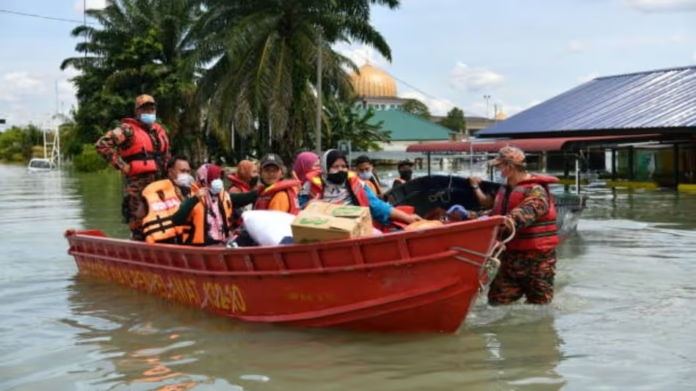Tripura’s political parties have called for increased disaster management funds during their meeting with the 16th Finance Commission. Representatives from the CPIM, Congress, and BJP have jointly urged the commission to review allocations under the National Disaster Response Fund (NDRF) and the State Disaster Relief Fund (SDRF). They have emphasized the need for more resources to tackle natural calamities and mitigate their impact on the state’s vulnerable communities.
The leaders have highlighted that Tripura, with its susceptibility to floods, landslides, and cyclones, requires a robust disaster response mechanism. They have insisted that the current funding structure does not adequately address the frequent challenges the state faces. By increasing the allocation under the NDRF and SDRF, they believe the state can strengthen its infrastructure and improve preparedness for future disasters.
Another major demand raised in the meeting involves the increase in the state’s tax share from the central pool. Party representatives have urged the Finance Commission to raise the tax devolution to 50%, arguing that Tripura requires more financial independence to address developmental needs. They have pointed out that the state’s limited industrial base and dependency on central funds make it imperative to secure a higher tax share to support long-term growth and economic stability.
Tripura’s tribal communities have also been a key concern in these discussions. Leaders from various parties have emphasized the necessity of direct funding to the Tripura Tribal Areas Autonomous District Council (TTAADC). They have stated that the current financial structure does not allow for sufficient resources to reach tribal areas effectively. Direct financial support to TTAADC would help bridge development gaps and ensure that tribal communities receive adequate welfare benefits.
The meeting has also addressed the broader issue of financial constraints in disaster management. The political representatives have stressed that timely disbursement of relief funds remains a significant challenge. Delays in fund allocation often hinder immediate relief efforts, leading to greater losses and prolonged hardships for affected communities. They have urged the Finance Commission to streamline the process and ensure that emergency funds reach the state without bureaucratic obstacles.
The CPIM has particularly voiced concerns over climate change and its impact on Tripura’s disaster patterns. Leaders from the party have argued that unpredictable weather conditions have increased the frequency of calamities, making it essential for the government to reassess its disaster preparedness strategies. They have urged the Finance Commission to consider long-term resilience measures, including investment in climate-resilient infrastructure and advanced early warning systems.
Congress representatives have focused on the need for better rehabilitation policies. They have pointed out that disaster relief efforts should go beyond immediate aid and include long-term rehabilitation plans. They have stressed that displaced communities require sustainable housing, employment support, and psychological assistance to recover fully from disasters. They have also suggested that disaster management funds be utilized to build permanent shelters in flood-prone areas.
BJP leaders have supported the call for increased disaster funds while also emphasizing accountability in fund utilization. They have suggested that a transparent monitoring system be put in place to track how disaster relief funds are being spent. They have proposed the introduction of periodic audits and public reporting mechanisms to ensure that the financial assistance reaches the intended beneficiaries.
The discussions have also touched upon the need for better coordination between central and state agencies in disaster management. Political leaders have emphasized that strengthening institutional mechanisms and ensuring seamless communication between different levels of governance would lead to more effective disaster response strategies. They have urged the Finance Commission to consider setting up a dedicated regional disaster management center in Tripura to handle crises more efficiently.
The Finance Commission has taken note of the demands raised by Tripura’s political leaders. While no immediate commitments have been made, officials from the commission have assured that the concerns will be evaluated as part of the overall financial recommendations for the state. The final decision on fund allocations and tax share adjustments will be announced after a detailed review of Tripura’s financial and disaster management needs.
Tripura’s political leaders have expressed hope that their collective appeal will result in significant policy changes. They have reiterated that disaster management should be treated as a priority, given the state’s geographical vulnerabilities. The outcome of the Finance Commission’s recommendations will play a crucial role in shaping Tripura’s preparedness and resilience in the coming years.


